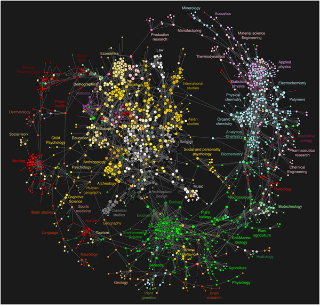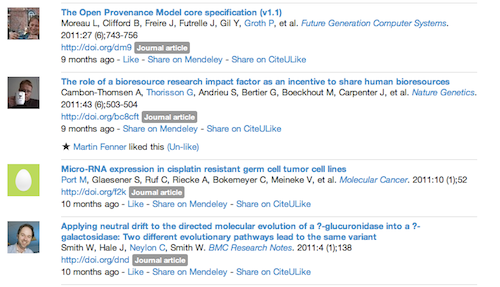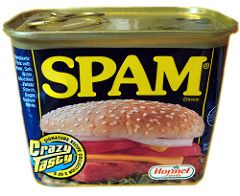
Last week I attended the altmetrics12 workshop in Chicago. You can read all 11 abstracts here, and the conference had good Twitter coverage (using the hashtag #altmetrics12), at least until Twitter had a total blackout around 12 PM our time. All but two presenters used slides – I have uploaded my presentation to Speaker Deck.





